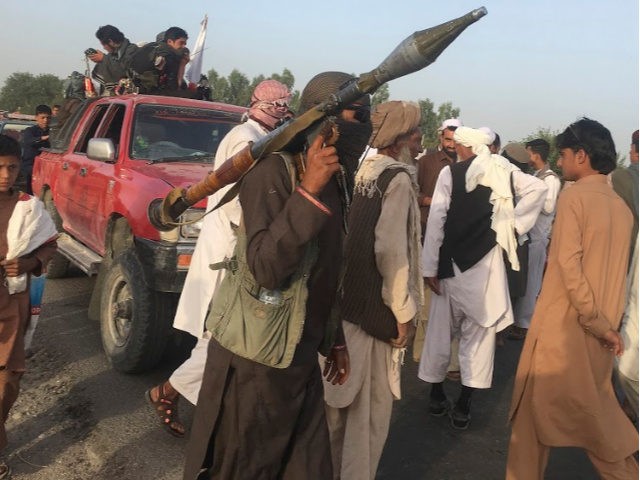Fazal Hadi Muslimyar, the head of the Afghan Senate, said during a parliamentary address on Tuesday that many of the Taliban prisoners freed as part of the “peace process” have already returned to the battlefield.
Muslimyar claimed most of the 16 Taliban fighters reportedly killed in a battle with Afghan security forces along the Kabul-Jalalabad highway in Laghman province on Monday were recently-released prisoners.
Muslimyar said he is not completely opposed to exchanging prisoners with the Taliban to secure a peace agreement, but he said it was important to release only militants “who are committed to a peaceful life,” which does not sound like the attitude of most Taliban fighters captured in the course of attempting to murder their countrymen.
Taliban leaders pledged in April that none of their released prisoners would return to battle, and some of the freed detainees claimed to be exactly the sort of peace-loving souls Muslimyar is looking for.
“We don’t want to fight in Afghanistan anymore and we don’t want to spend our lives in prison anymore,” one of the Taliban fighters chirped as he emerged from prison with 99 of his fellows in April.
By June, AFP cited widespread fears of Taliban detainees returning to the battlefield, and quoted former prisoners such as Mohamed Daud, who was captured by U.S. forces nine years ago and released by the Afghan government in May in a “goodwill gesture,” and was already spoiling to get back to war.
“If the Americans do not pull out, we will continue our jihad, because they have killed many Afghans in their operations. We do not want foreign forces in our country anymore,” said Daud, who like most freed detainees was required to sign a pledge that he would never take up arms again.
Taliban officials insisted to AFP the freed detainees would be shuffled into the “reserves” instead of active combat duty since the terrorist group no longer needed “manpower in the battlefield” thanks to peace negotiations.
Fazal Hadi Muslimyar also made the news on Wednesday because the Saudi ambassador to Afghanistan, Jassim bin Mohammad al-Khalidi, said it was necessary to correct the Senate chief’s “misunderstanding” about the Kingdom of Saudi Arabia pledging more financial support for projects in Afghanistan.
According to Khalidi, Muslimyar emerged from a meeting with him on Sunday claiming that Saudi Arabia was committed to spending “$30 million for constructing a hospital in Kabul” and donating “$54 million for Afghanistan’s fight against the coronavirus,” along with a plan for building one hundred new Islamic schools, but in truth Khalidi said he made no new promises in his conversation with Muslimyar.
“I gave him a review of what we have been doing in terms of our development projects in Afghanistan. There has been no new pledge at all, he misunderstood this,” Khalidi said.
Muslimyar’s office agreed there had been a “misunderstanding during the translation with regards to some words,” but seemed only to officially retract Muslimyar’s comment about the Saudis building a hundred new Islamic schools.

COMMENTS
Please let us know if you're having issues with commenting.